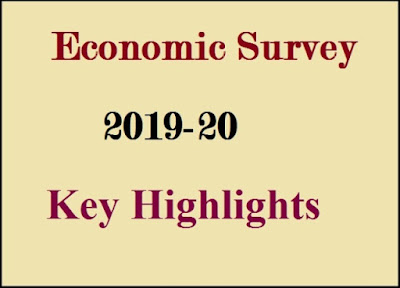Economic Survey 2019-20: Finance Minister Nirmala Sitharaman tabled the latest Economic Survey for 2019-20 in both Houses of Parliament. Keeping aside all the speculation with several challenges, the Indian economy is expected to grow 6-6.5 percent in 2020-21.
Needless to say, the Economic Survey is used to serve as the report card of the performance of the government on the overall front. By the way, the basic theme for the Economic Survey is 'Wealth Creation' and the mint of Economic Survey is displaying the major ten new ideas as how to fulfil this wealth creation goal.
Key Highlights of the Economic Survey 2019-20
- India’s dominance as global economic power for three-fourths of economic history manifests by design.
- Kautilya’s Arthashastra postulates the role of prices in an economy (Spengler, 1971).
- Historically, Indian economy relied on the invisible hand of the market with the support of the hand of trust:
- Invisible hand of the market reflected in openness in economic transactions.
- Hand of trust appealed to ethical and philosophical dimensions.
- Post-liberalisation, Indian economy supports both pillars of the economic model advocated in our traditional thinking.
- Survey illustrates enormous benefits accruing from enabling the invisible hand of the market.
- Exponential rise in India’s GDP and GDP per capita post-liberalisation coincides with wealth generation.
- Survey shows that the liberalized sectors grew significantly faster than the closed ones.
- Need for the hand of trust to complement the invisible hand, illustrated by financial sector performance during 2011-13.
- Survey posits that India’s aspiration to become a $5 trillion economy depends critically on:
- Strengthening the invisible hand of the market and Supporting it with the hand of trust.
- Strengthening the invisible hand by promoting pro-business policies to:
- Provide equal opportunities for new entrants.
- Enable fair competition and ease doing business.
- Eliminate policies unnecessarily undermining markets through government intervention.
- Enable trade for job creation.
- Efficiently scale up the banking sector.
- Introducing the idea of trust as a public good, which gets enhanced with greater use.
- Survey suggests that policies must empower transparency and effective enforcement using data and technology.


Post a Comment